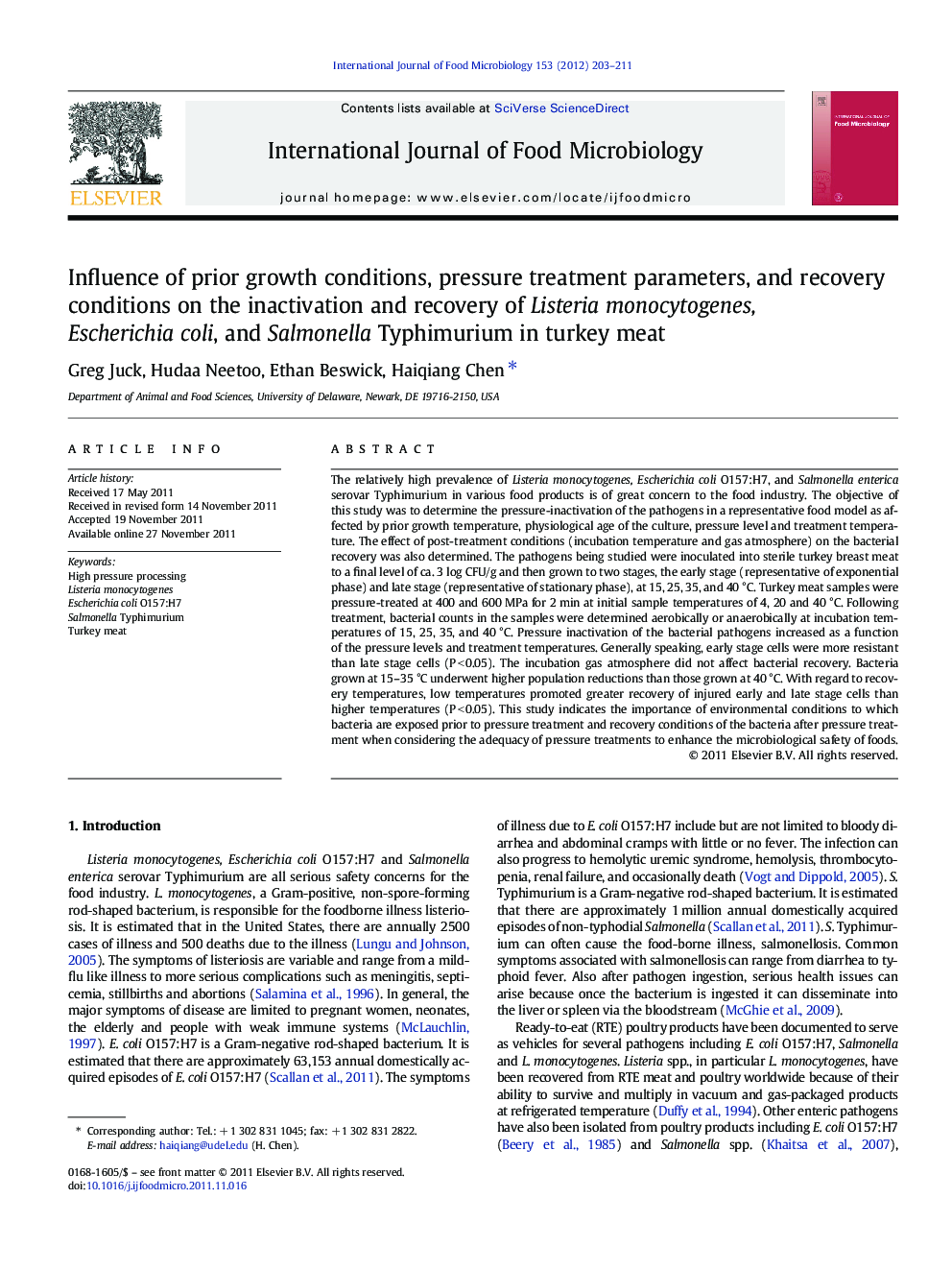| Article ID | Journal | Published Year | Pages | File Type |
|---|---|---|---|---|
| 4367841 | International Journal of Food Microbiology | 2012 | 9 Pages |
The relatively high prevalence of Listeria monocytogenes, Escherichia coli O157:H7, and Salmonella enterica serovar Typhimurium in various food products is of great concern to the food industry. The objective of this study was to determine the pressure-inactivation of the pathogens in a representative food model as affected by prior growth temperature, physiological age of the culture, pressure level and treatment temperature. The effect of post-treatment conditions (incubation temperature and gas atmosphere) on the bacterial recovery was also determined. The pathogens being studied were inoculated into sterile turkey breast meat to a final level of ca. 3 log CFU/g and then grown to two stages, the early stage (representative of exponential phase) and late stage (representative of stationary phase), at 15, 25, 35, and 40 °C. Turkey meat samples were pressure-treated at 400 and 600 MPa for 2 min at initial sample temperatures of 4, 20 and 40 °C. Following treatment, bacterial counts in the samples were determined aerobically or anaerobically at incubation temperatures of 15, 25, 35, and 40 °C. Pressure inactivation of the bacterial pathogens increased as a function of the pressure levels and treatment temperatures. Generally speaking, early stage cells were more resistant than late stage cells (P < 0.05). The incubation gas atmosphere did not affect bacterial recovery. Bacteria grown at 15–35 °C underwent higher population reductions than those grown at 40 °C. With regard to recovery temperatures, low temperatures promoted greater recovery of injured early and late stage cells than higher temperatures (P < 0.05). This study indicates the importance of environmental conditions to which bacteria are exposed prior to pressure treatment and recovery conditions of the bacteria after pressure treatment when considering the adequacy of pressure treatments to enhance the microbiological safety of foods.
► When growing in meat, early stage cells were more pressure resistant than late stage cells. ► Cells grown at 15–35 °C were generally more pressure sensitive than those grown at 40 °C. ► Higher treatment temperature enhanced pressure inactivation of the pathogens. ► Lower incubation temperatures promoted greater recovery of pressure-injured cells. ► Incubation gas atmosphere did not affect bacterial recovery.
